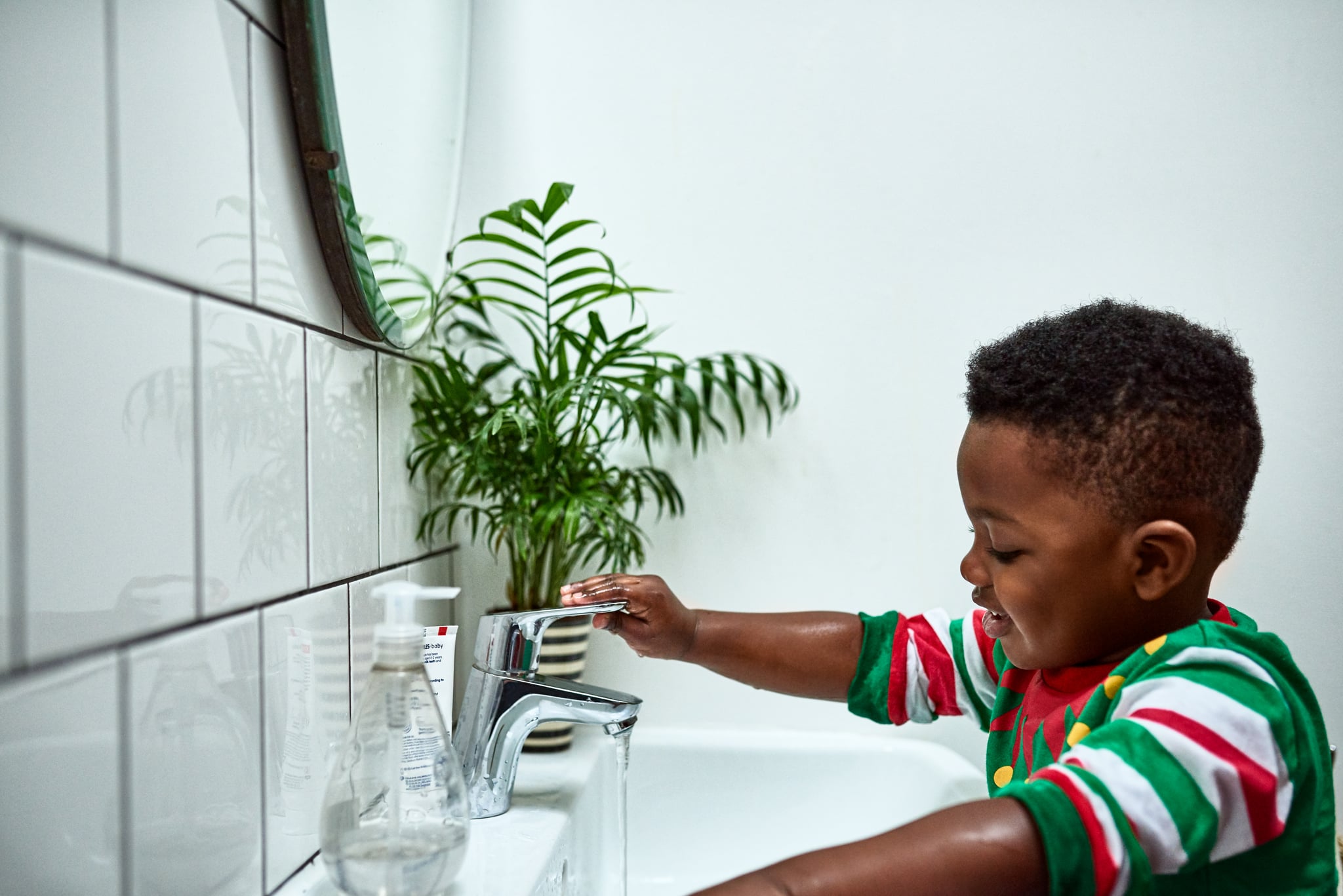How to Get Kids to Wash Their Hands
5 Tactics I Use When My Preschooler Refuses to Wash His Hands

My 4-year-old son was never a fan of handwashing, but when the coronavirus outbreak kicked our handwashing into high gear, it revived an old power struggle I thought we'd handled in his toddler years. Getting him to agree to wash his hands, let alone meticulously scrub them for 20 seconds, became a draining chore. He'd negotiate, cry, holler, and eventually surrender.
Frustrated and anxious to understand why handwashing was suddenly an issue, I reached out to Rose & Rex's Education Director Lauren Vien, M. Ed. Lauren taught in private Manhattan preschools for over a decade before joining Rose & Rex's team and authoring The Guide: Positive Language Strategies. She points out that for small children, power struggles can be related to an underlying need. "Avoiding handwashing might be his way of expressing that he's craving more control," Lauren explained.
As a self-proclaimed control freak myself, I get it. With so much change happening at once, him refusing to wash his hands probably feels empowering. Just as my elaborate disinfecting rituals make me feel less anxious.
Lauren suggests meeting children in the middle by offering two clear choices when possible, like asking him if he would like to wash his hands in the kitchen sink or the bathroom sink. If children are unable or unwilling to make a choice, she suggests parents follow up by saying, "It's taking a very long time for you to wash your hands. If it's hard for you to make a choice about where you'll wash your hands, I can choose for you."
While Lauren notes that it takes time and consistency, she assures it's worth the investment. "Children quickly discover that it's in their best interest to select one of the two choices presented to them!"
4 More Tips For Getting Kids to Wash Their Hands
Explain the science: Giving my son context about germs and explaining the coronavirus in an age-appropriate way has also helped. This three-ingredient experiment is a fun way to show kids how washing their hands can protect them.
Incorporate play: If my son doesn't want to do something, being playful can get him to cooperate. Pretending that our gel hand wash is zombie slime or blowing a bubble once I've worked up a good lather have both worked miracles before.
Play music: Turning on this "Baby Shark" handwashing song and belting out the lyrics makes a 20-second handwashing session much more fun.
Use the when-then tactic: Instead of repeatedly asking my son to wash his hands and eventually losing my cool with a "you better do it or else" threat, it helps to calmly explain that when he does the undesirable task, then he can do something he is looking forward to. For example, I might say when you wash your hands, then you can have your snack. This when-then tactic really helps to avoid power struggles if all else fails.






